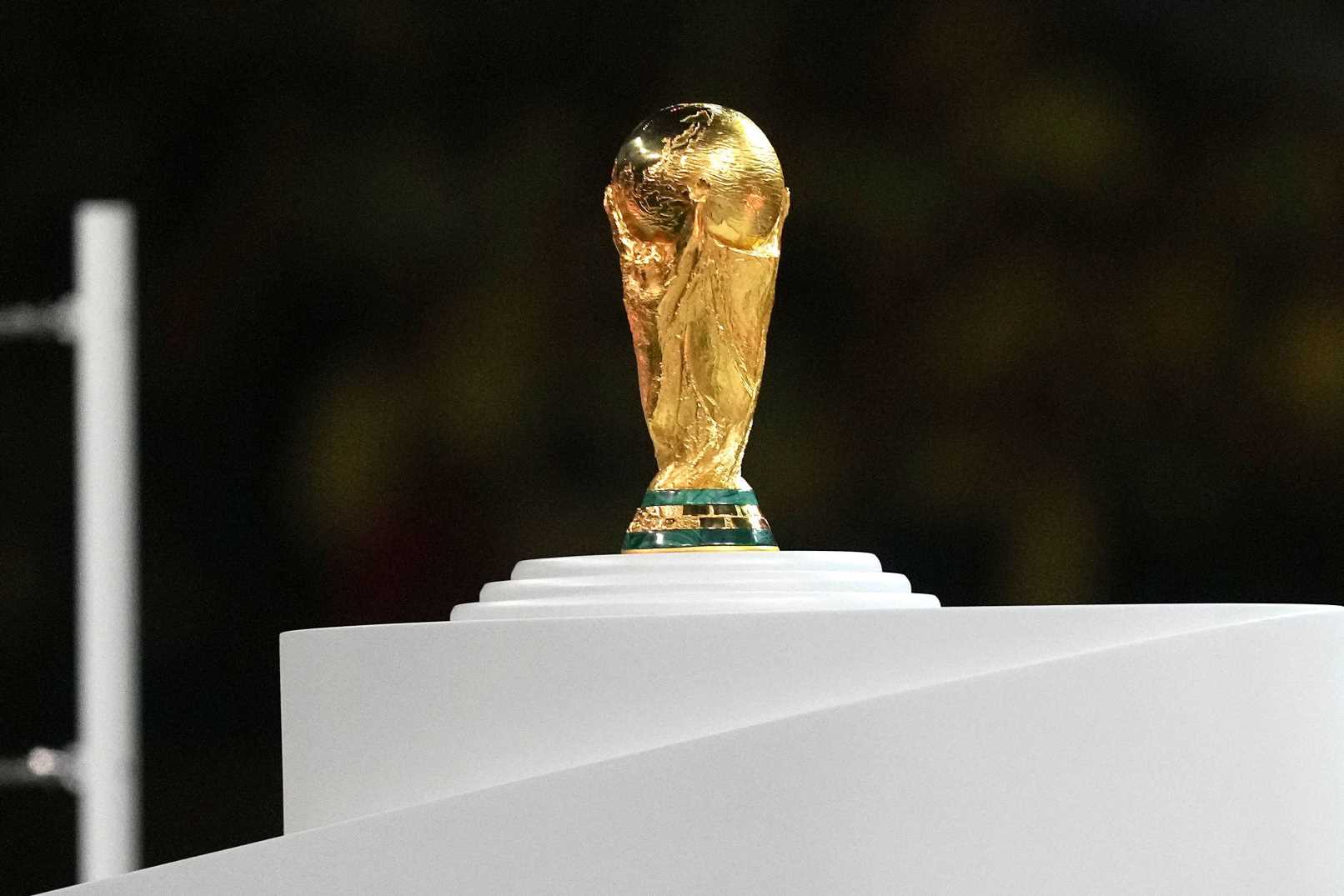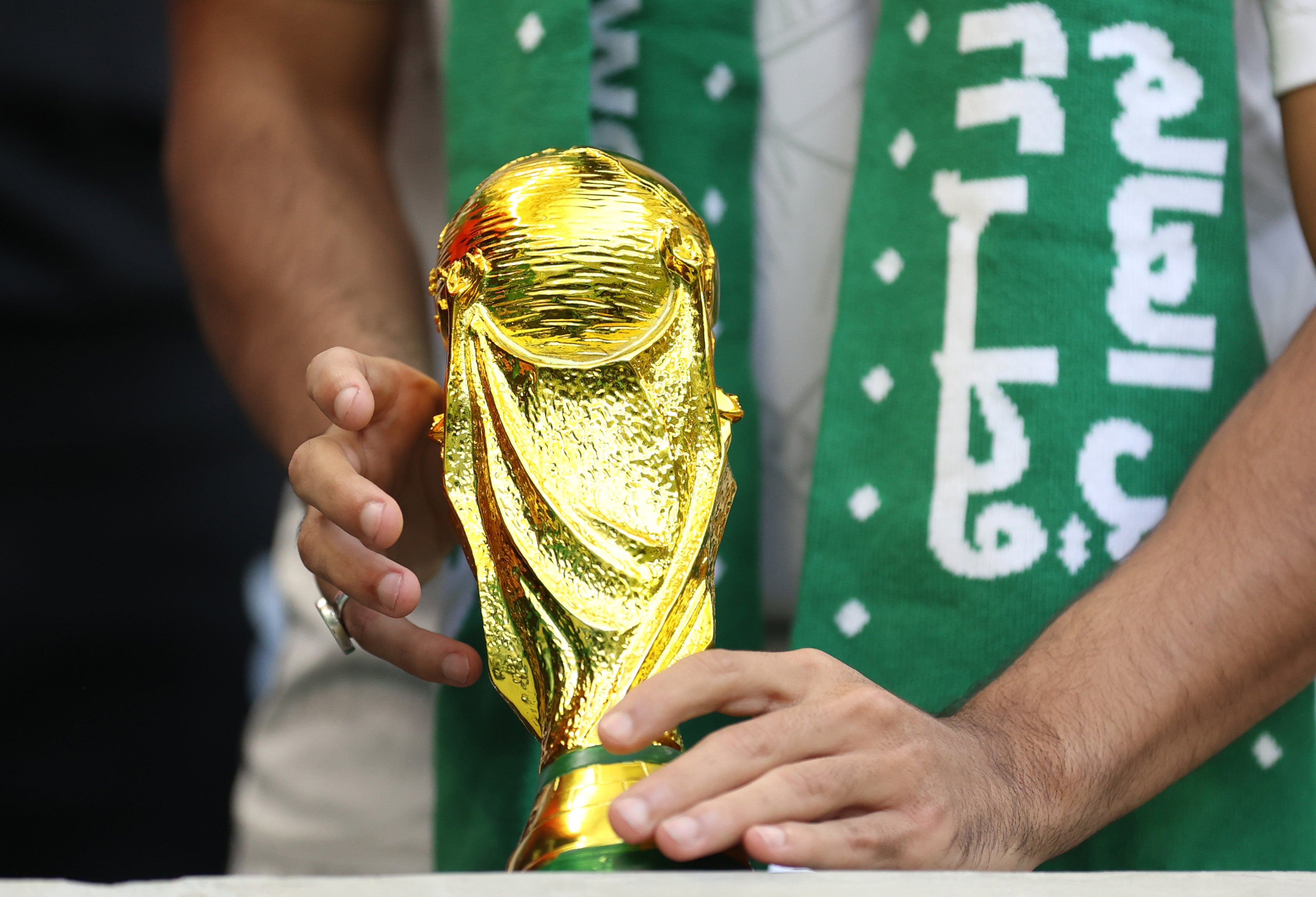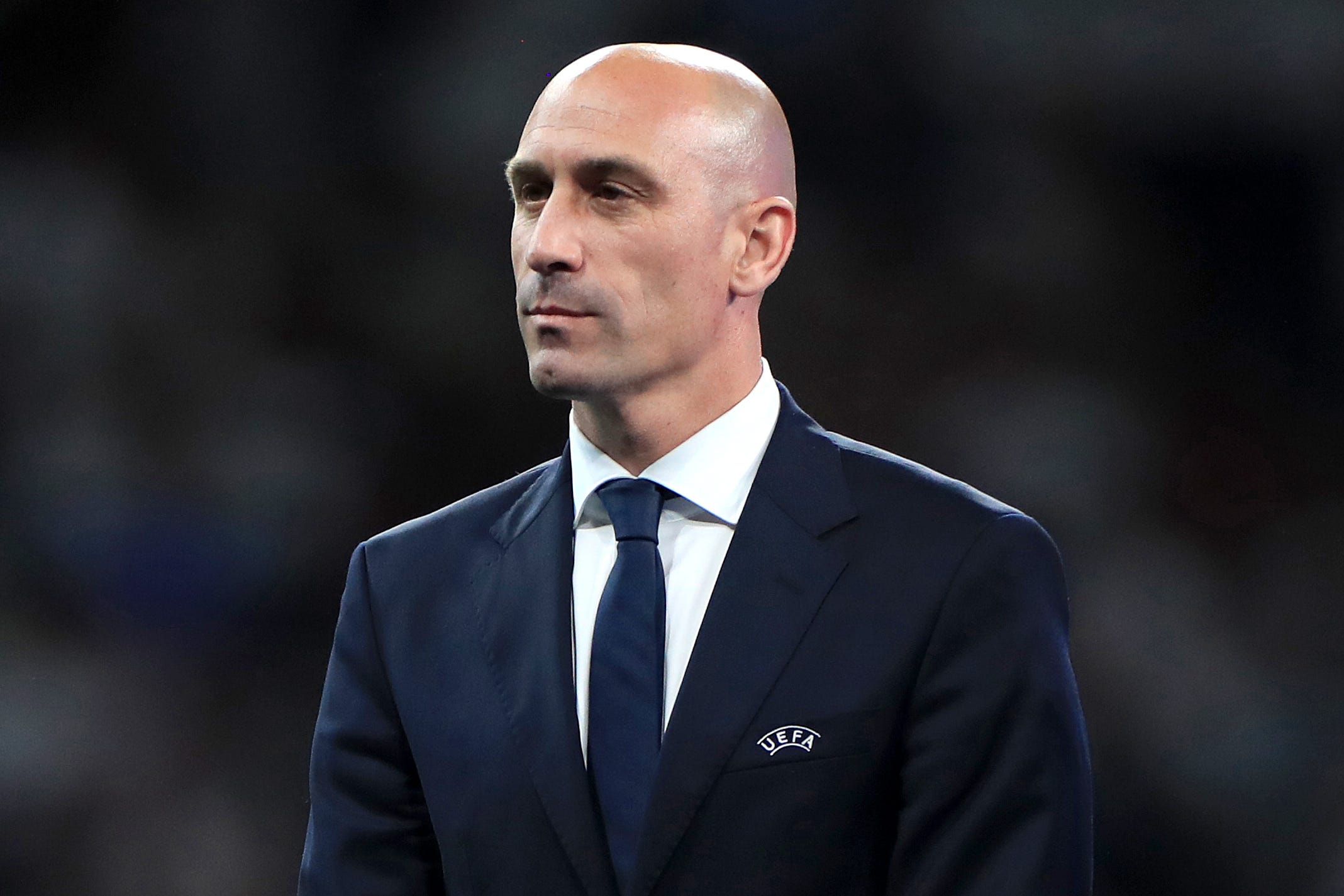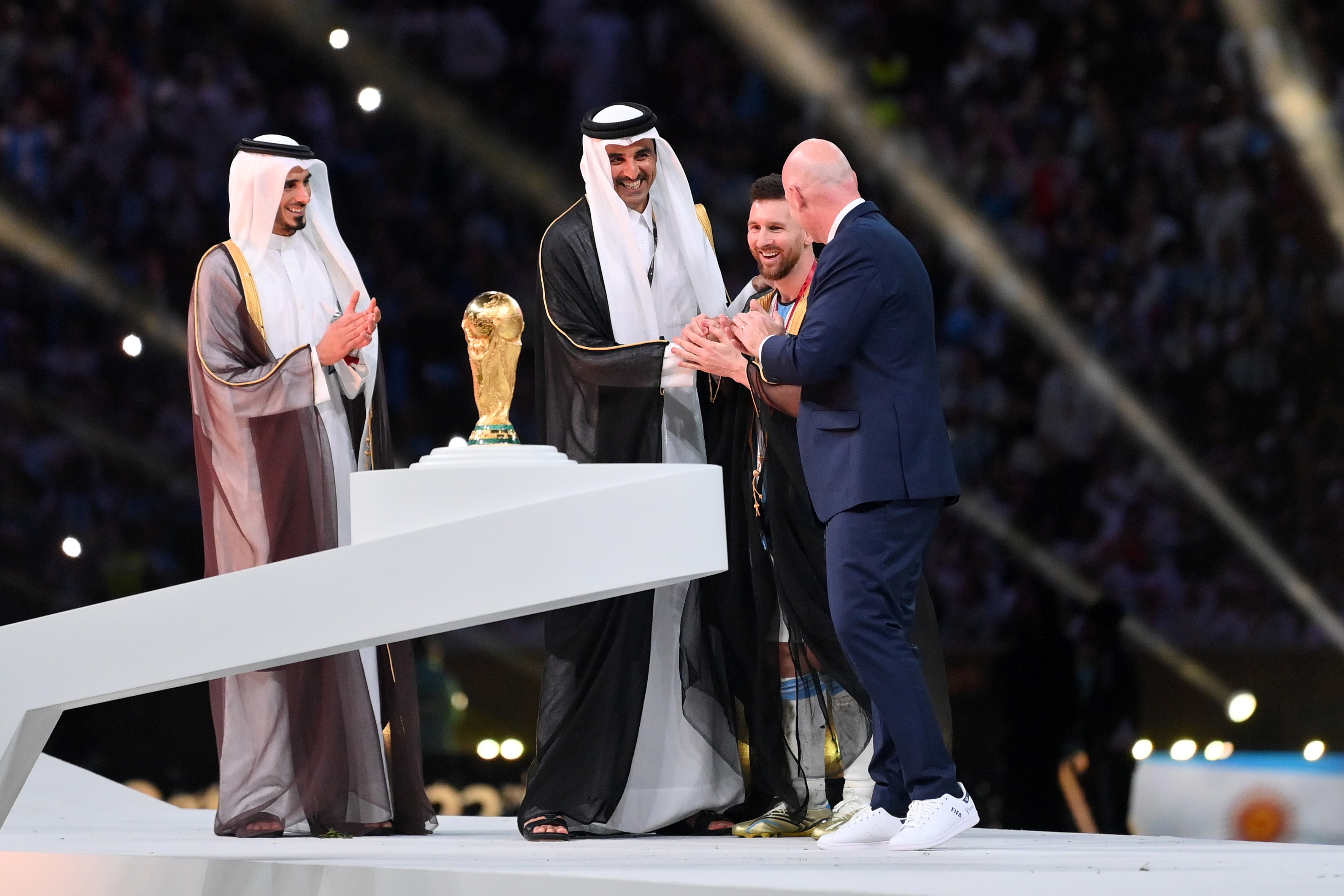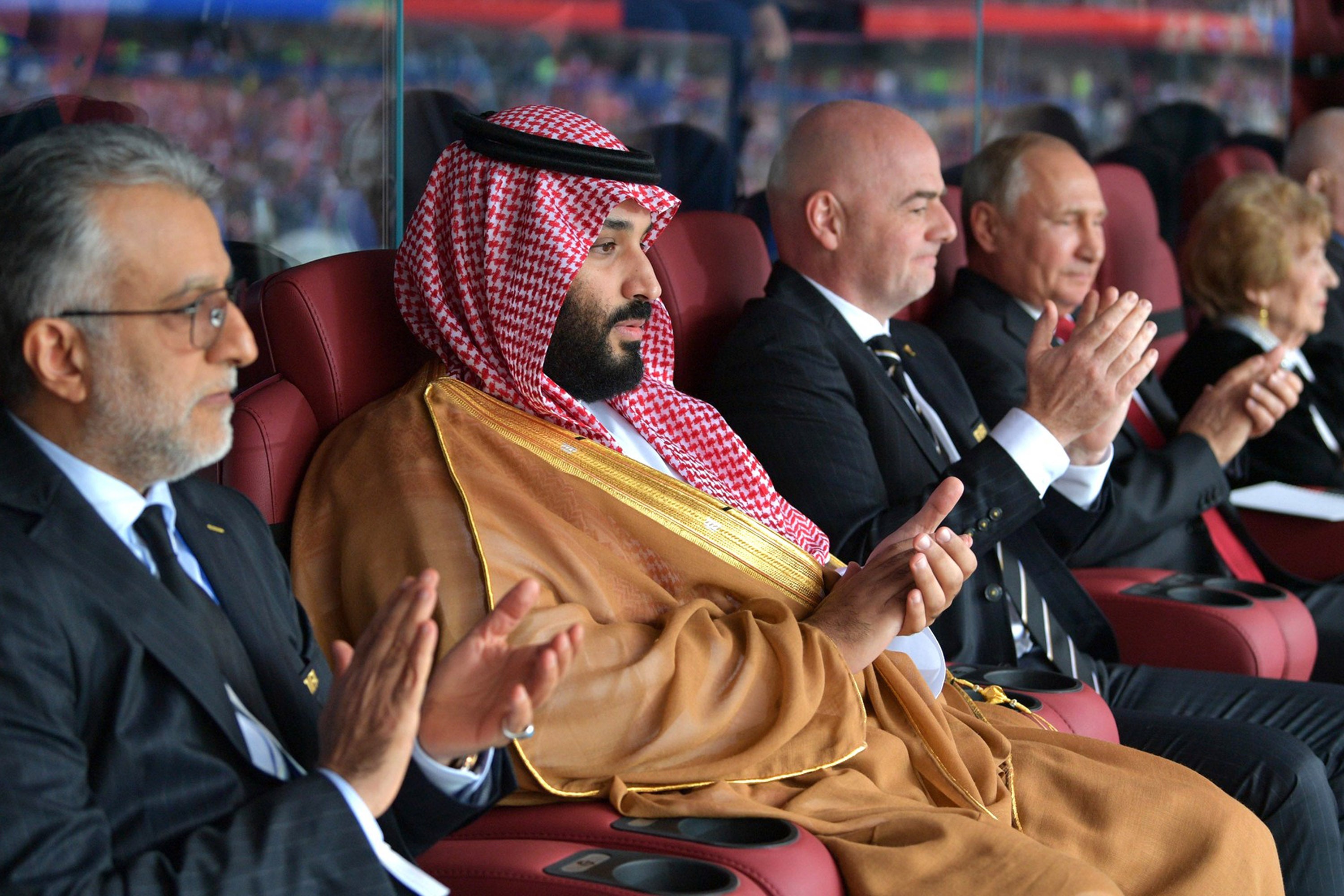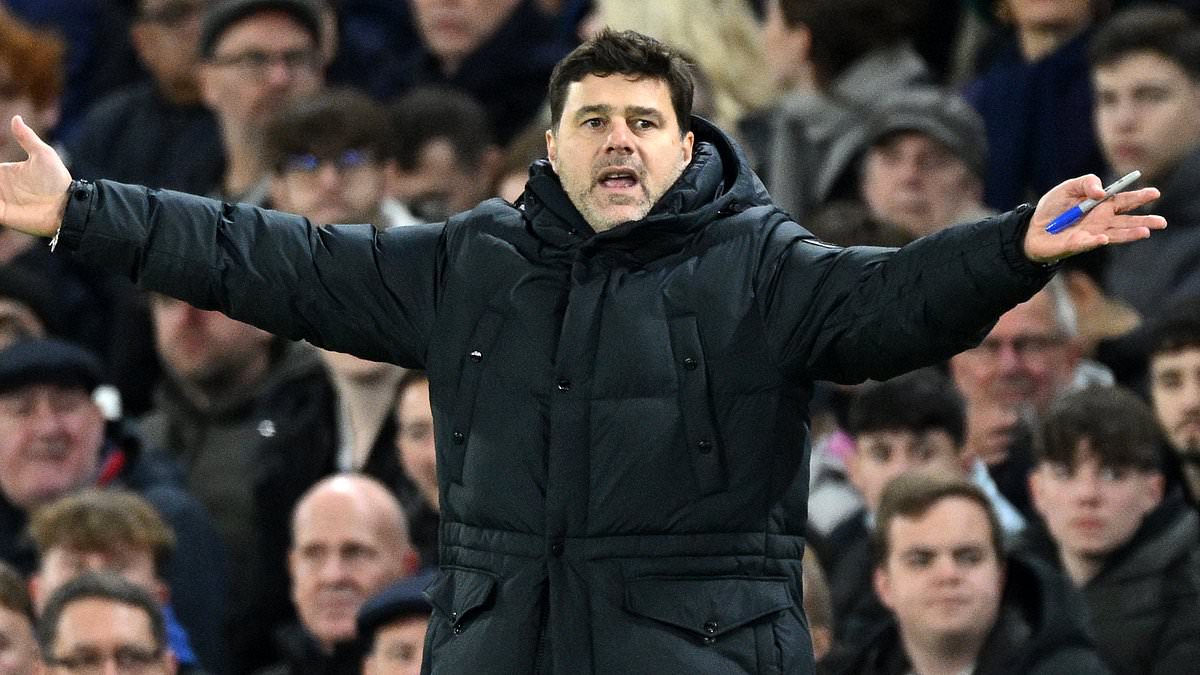Fifa urged to show commitment to improving human rights in World Cup host nations
Sign up to Miguel Delaney’s Reading the Game newsletter sent straight to your inbox for free
Sign up to Miguel’s Delaney’s free weekly newsletter
Thanks for signing up to the
Football email
There is “significant concern” among domestic leagues around the world over how a Saudi Arabian World Cup in 2034 is likely to cause an even greater disruption to the calendar than Qatar 2022, with particular frustration about how a decision that is now set to be a fait accompli involved almost no consultation with primary stakeholders. While key figures and member associations are waiting to see how the bid process plays out ahead of final confirmation in the fourth quarter of 2024, many are already concerned about how there has apparently been less transparency to this process than in the controversial bids for Russia 2018 and Qatar 2022 in December 2010.
Football Australia confirmed they would not be bidding for the 2034 World Cup on Tuesday, leaving Saudi Arabia as the sole candidate for a tournament that is still 11 years away. With 2030 set to feature games in South America, Africa and Europe, and 2026 going to Central and North America, Fifa’s rotation rules mean only countries from the Asian Football Confederation and Oceania Football Confederation were eligible for 2034. That essentially left Australia and New Zealand as competitors to Saudi Arabia, as so many Asian countries rowed in behind Saudi Arabia. Given they still had to come up with three new stadiums in the space of three weeks before the deadline due to Fifa’s rules, various factors have combined to leave Saudi Arabia as the only candidate left.
This all comes amid a strong relationship between Fifa president Gianni Infantino and Saudi Arabian crown prince Mohammed Bin Salman over the last half-decade. The global body has done more sponsorship deals with Saudi companies, including one with Visit Saudi for the 2023 Women’s World Cup – ironically in Australia and New Zealand – that brought a revolt from the players.
With the Saudi summer set to involve unplayable temperatures and the World Cup going to 48 teams, however, the accommodation of the tournament is set to require far greater upheaval than that for the long and controversial build-up to Qatar in 2022. Sources within a series of major leagues around the planet are furious about how they just have not been involved in any discussions about this.
Recommended
The World Leagues Forum released a statement in March expressing concern about “Fifa’s unilateral decisions” on the global match calendar and have since formed an alliance with the players’ union FifPro about connected issues.
Other senior figures in football have raised the issue of how hosting the tournament in Saudi Arabia will involve all the same controversies as Qatar, from migrant labour to human rights, but on a much greater scale. Sources have pointed to how Human Rights Watch have already accused Fifa of going against their 2017 Human Rights Policy, something that was supposed to represent a major change after all the criticism for the 2018-2022 process.
Article seven says: “Where the national context risks undermining FIFA’s ability to ensure respect for internationally recognised human rights, FIFA will constructively engage with the relevant authorities and other stakeholders and make every effort to uphold its international human rights responsibilities”.
The 2034 World Cup could be more controversial than Russia 2018 and Qatar 2022
There is particular frustration at how the reforms after the 2010-15 period were supposed to bring complete transparency regarding World Cup hosting, with the process moved to one vote for each of the 211 member associations. Instead, for both 2030 and 2034, the member associations will have no real choice on bids and only get to vote to ratify decisions already taken elsewhere.
Fifa would argue they have conformed to all of their statutes since each of the continental confederations approved the decisions at Council, with those representing the member associations, and all the bidding documents having been made public.
“It sums up everything that is wrong with football governance,” one senior league figure said privately, with others adding how the lack of transparency feels “worse than for 2022”.
Saudi Arabia’s Crown Prince Mohammed Bin Salman and Fifa president Gianni Infantino
Some even went so far as expressing sympathy for the Super League model given how the presidential model at both Fifa and Uefa appears to be leading to an increasing number of unilateral decisions. Just as there have only been single bidders for a series of tournaments, including the European Championships, there have been no rival candidates in a number of presidential elections around the global confederations, denying true democracy.
There is meanwhile a belief that Saudi Arabia could yet bring in other countries to share some of the games, since it will be a 48-team tournament, and the idea of involving Egypt, Greece and other countries around the geographical region has already been raised.
Source: Read Full Article
